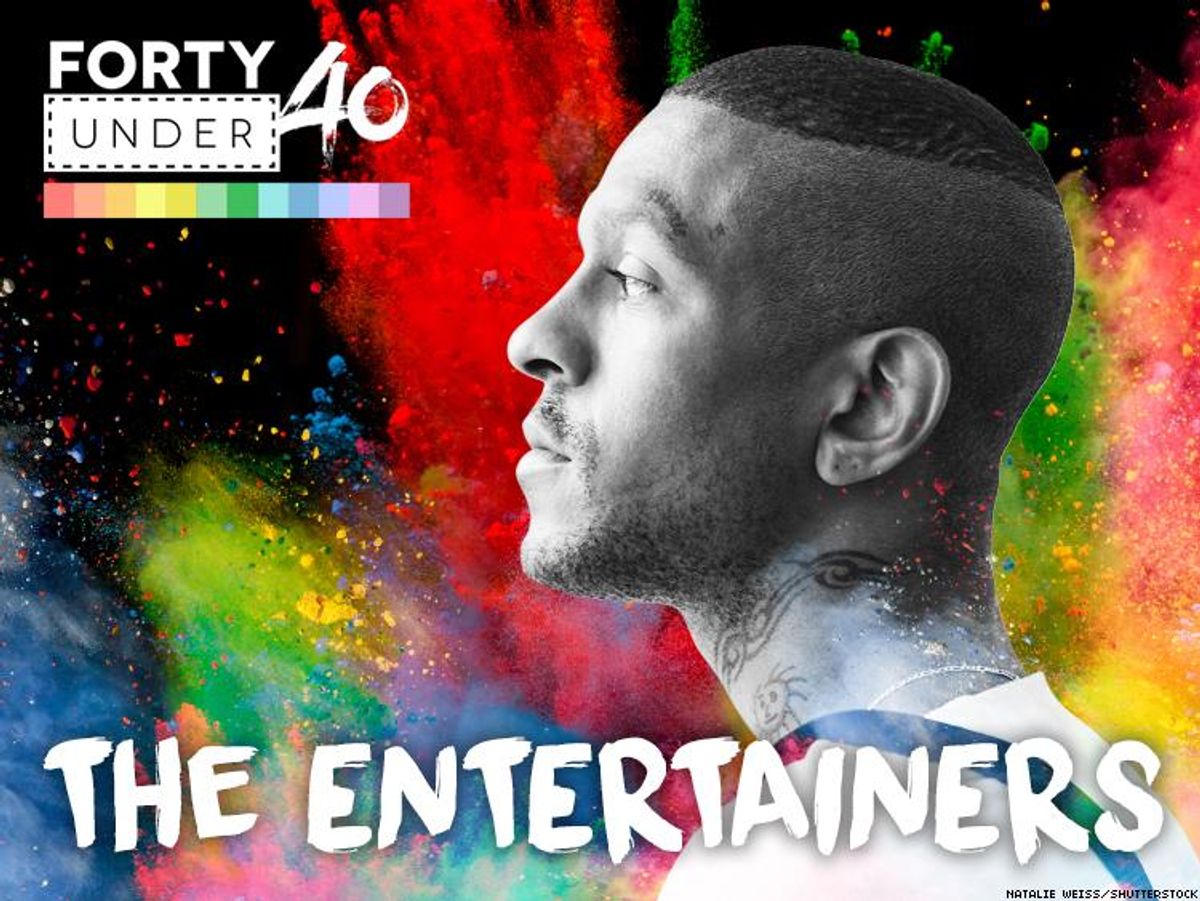Mykki Blanco has always been a revolutionary. The rapper, who vacillates between masculine and feminine identities in his private and public life, has been unafraid to challenge gender norms, homophobia, and transphobia in the music industry and beyond.
"Oh this fag can rap? Yeah, they saying that. They listening," Blanco declared in the breakout music video "Wavvy," where the 29-year-old performer appeared as both a shirtless man running from police and a glamorous female entertainer in a nightclub.
And they are listening. Over 1.6 million people have watched that music video on YouTube since it was posted in 2012. But it wasn't bold lyrics that captured the attention of mainstream media in 2015. It was a message posted to Facebook in June, the month in which the LGBT community celebrates its identity and honors the historic Stonewall riots.
"I've been HIV-Positive since 2011, my entire career. Fuck stigma and hiding in the dark, this is my real life. I'm healthy I've toured the world 3 times but I've been living in the dark, it's time to actually be as punk as I say I am," Blanco wrote, and followed it with another comment: "No more living a lie. HAPPY PRIDE."
Over 12,000 people liked the post, and over 700 shared it. Outlets like Time and Newsweek reported on it. And no wonder. For the first time since Eazy-E, the N.W.A. performer who died of an AIDS-related illness in 1995, a rapper had come out as HIV-positive, a testament to the stigma that still silences many in the entertainment world.
"I did it for love. I did it for myself," Blanco told Plus magazine in an interview following the post seen round the world. But Blanco, who had become an inspiration to many for celebrating gay and trans identity, also did it for the fans.
"How shitty and how deceived would they feel if, 20 years from now, they found out I was HIV-positive but I was too afraid of the stigma to come out about it?" Blanco stated. "What kind of fraud would I have been to all the people that supported me? All the people that are trans and positive? Who are gay and positive? Who have supported me and bought my music and come to my shows? I couldn't be honest with myself enough, to love myself enough, [so] that self-love could then be encouragement or inspiration to them? No, no, no. Honestly, truthfully, I think I have too much integrity for that."
Blanco is also using this voice to draw attention to issues like stigma against HIV, which extends far beyond the LGBT community or the music industry. A U.N. report last year estimated that 35 million people are living with the virus worldwide. Blanco is fighting to make sure their struggle is acknowledged and that they are treated with respect.
"Thirty-five million people? I hate to say it, but that's enough to have it almost be normal," Blanco said. "I think 35 million people deserve to be treated with a sense of normalcy. I think 35 million people deserve to live in a world where they're not fearmongered. I think 35 million people deserve to live in a country -- to live in a world -- where HIV-negative people don't think they can turn their fucking nose up at us because we're positive."
The consequences of stigma can be devastating. Treating the virus as a taboo subject fuels the HIV epidemic, as knowledge about the virus is key to fighting it. Moral judgments about the way HIV can be transmitted, such as through sex or drug use, can keep many fearful of seeking testing and treatment. And although this stigma may be difficult to measure, much of it is systemic. According to UNAIDS, 60 percent of countries have laws, policies, or practices that create barriers to HIV care. Just last year, activists decried the criminalization of HIV transmission and the enforcement of mandatory testing in Uganda, whose HIV rates have skyrocketed in recent years. But even in the United States, more than 30 states have laws criminalizing HIV transmission, and thousands of people who were too fearful to seek medical treatment continue to die of AIDS-related illnesses each year, especially in at-risk groups like the LGBT and African-American communities.
Although Blanco initially feared becoming the "new poster child" for HIV, the rapper has recognized how vital such a role is, remarking, "I find myself wanting to talk about it in a way that I never did." Much as Blanco first used social media to come out as HIV-positive, the rapper is continuing to use it to fight stigma and spread the message of self-love.
"Being HIV-positive doesn't mean you don't get to feel sexy or free or liberated," he wrote to followers in one post. "It doesn't silence you from talking about sex or having sex. Be safe. Be conscious. Stay safe. Stay free."













































































